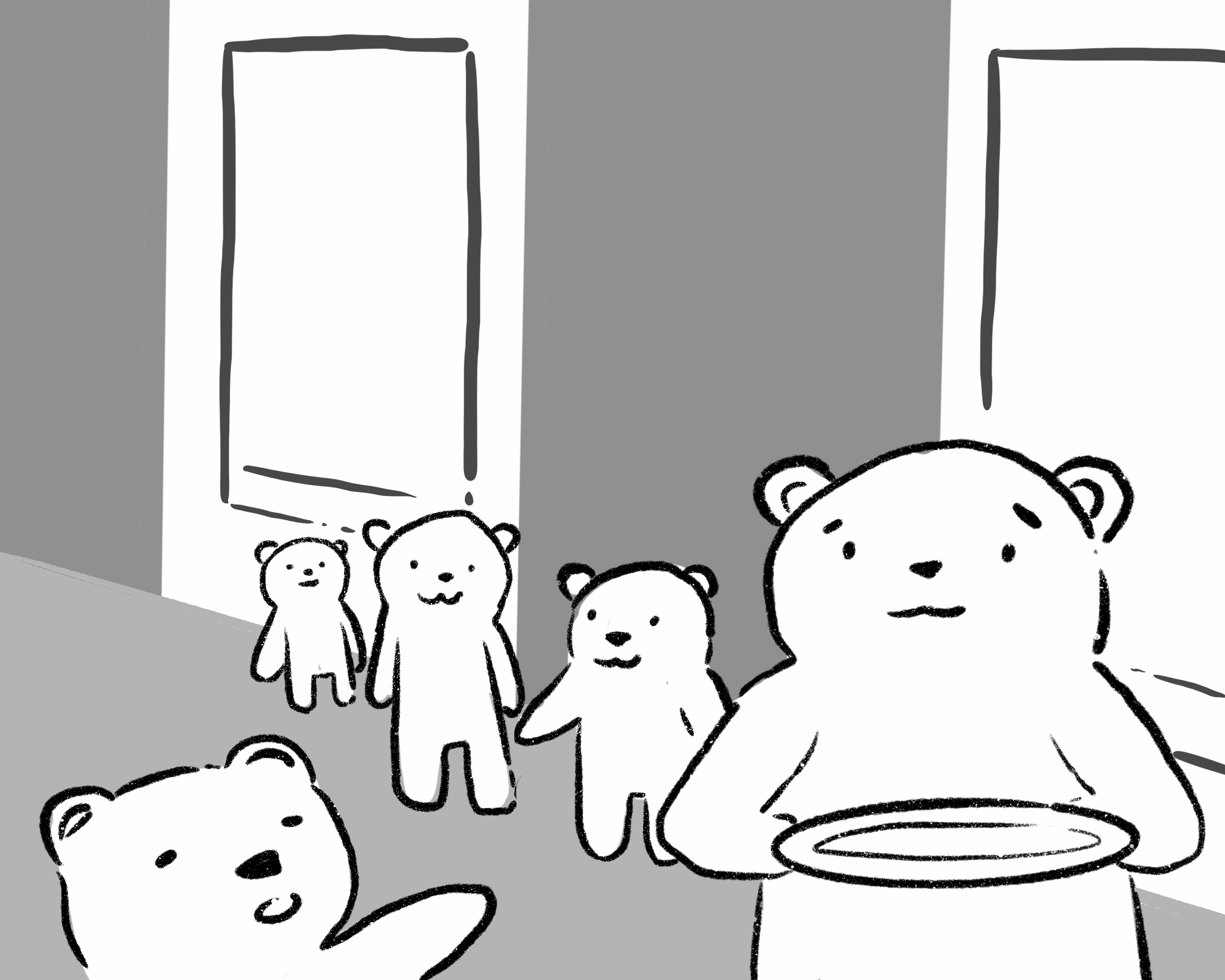Guidelines for joining people in the dining hall lines
April 19, 2024
 This
piece represents the opinion of the author
.
This
piece represents the opinion of the author
.
 Eva Ahn
Eva AhnI was standing in line in Moulton, two months ago, when the person in front of me was joined by a friend of his. One. No biggie. We took two steps, and a friend joined the friend. Two. No biggie. We took another two steps, and a friend joined the friend of the friend. Three. Partial biggie, but meh. We took another two steps, and a friend joined the friend of the friend of the friend. Four. Biggie, but I am working on being chill. We took another two steps, and a friend joined the friend of the friend of the friend of the friend. Five. Biggie. Yes, I did say something. And yes, I was the bigger fool. To be fair to me, I was unprepared for my opponent, who said, “You’re welcome to go in front of us, if it matters that much to you.” Yes, he got me. No, don’t be angry on my behalf. He won fair and square. No, I did not go in front of them. Instead, I waited for my food; and, when I sat down, I furiously started writing this op-ed. Two months have passed. I’ve cooled off. I can publish this now.
Joining people halfway down the line has at least one clear negative externality: more waiting time for those who joined at the back of the line (and did not benefit from the practice). Still, joining people in line seems to me to have two good enough reasons that make the practice acceptable, despite this negative impact on a third party. First, it provides company to those who were originally in line. Second, it ensures that there isn’t a small minority of people who (at least for long queue reasons) join the meal late. Be that as it may, there’s a clear injustice in, say, hypothetically, a group of five people joining one person. I propose, then, the following rules:
1. Canon for correct queue cutting: The number of people who can join those who were already in line (by which I mean, those who joined at the very back of the line) should not be a) greater than the number of people who were already in line or b) greater than four. When this results in one person being left out, one additional person can join.
2. Principle of proper placement: The number of people who can cut the line should decrease the further along you are in the line. This has no strict guidelines; be guided by basic human decency and read the room.
3. Plate prohibition: You cannot cut in the area where people have already gotten a plate and are about to get food.
To those who think this is too limiting I will point out that, in principle, if everyone followed these rules, the waiting time for someone at the back of the line could still more than double. And yet, it also feels fair enough (barely, but it does; plus, it doesn’t ask Bowdoin students to change their line habits too severely). It achieves the first original goal: people will always have company as they wait. Likewise, it ensures that there isn’t a small minority who join the meal late. In an obvious case: if there are three people in line and one arrives late, she can join them. In a less obvious case: if there is one person in line and three people arrive later, one person can join her and the other two can provide each other company and be ‘late’ together.
Most importantly, the rule ensures that those who join at the back of the line aren’t treated (too) unfairly. I am open to suggestions.
P.S. If you were one of the five people I mentioned in the beginning of this op-ed, come to my house. I’ll make us tea.
Edmundo Ortiz Alvarez is a member of the Class of 2023.

Comments
Before submitting a comment, please review our comment policy. Some key points from the policy: